1 early reason for optimism, pessimism for Canada's NHL teams
The NHL season is barely two weeks old: Most teams are just 5% into their regular season schedules. It's early - like, really early - which is why it's a good time to take the pulse of Canada's seven teams. How's everybody looking out of the gate? Here's one reason for optimism and pessimism for each Canadian club.
Calgary Flames
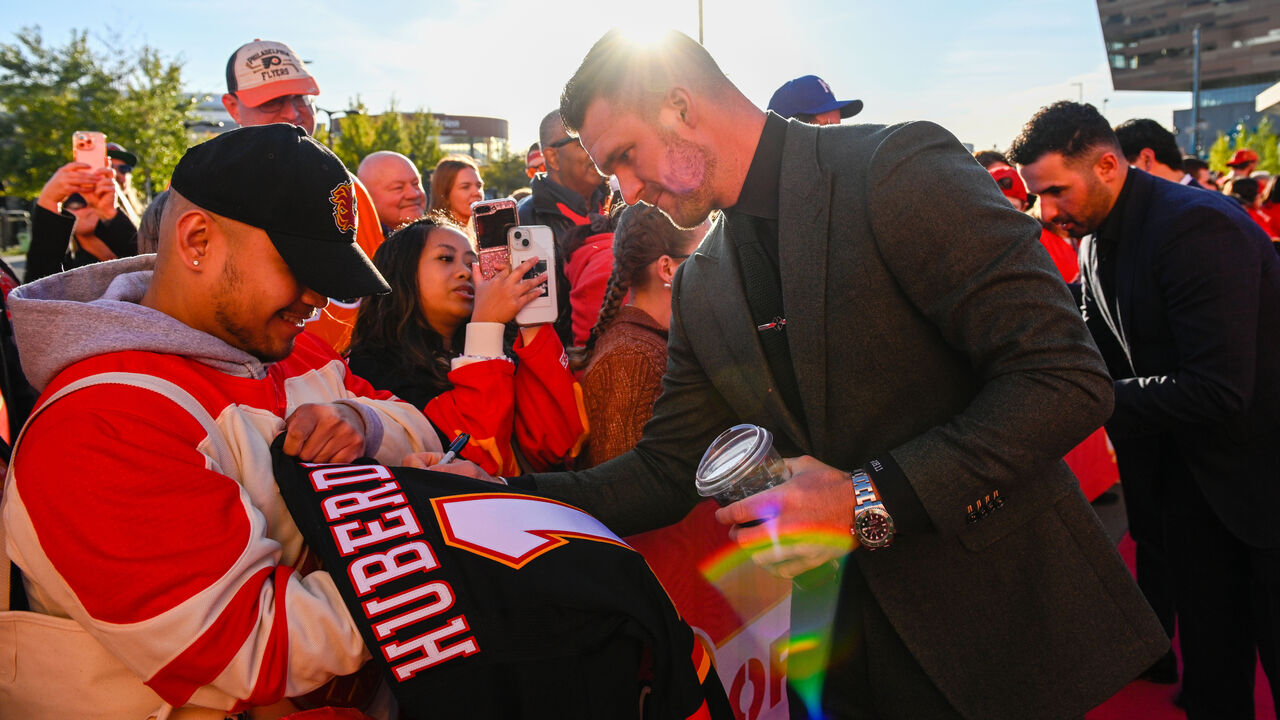
Record: 4-0-1 against the Canucks, Flyers, Oilers, Blackhawks, and Kraken.
Reason for optimism: Jonathan Huberdeau is leading the attack.
The highest-paid Flame (at $10.5 million annually through 2030-31) famously failed to perform to expectations during his first two seasons in Calgary. But Huberdeau's resembled his Panthers-era self to start Year 3. The winger posted four points in the Flames' second game and is up to three goals and three assists (off 10 slot passes) in six contests. He's even killing penalties.
It's too early to declare Huberdeau a fixed player. But it would be a huge boon for the Flames if he can continue to contribute like a top-line forward. Huberdeau's contract is basically immovable, which means the team and player are in it for the long haul. He needs to provide value every night.
Reason for pessimism: The Flames are a rebuilding club with zero regulation losses through five games. There's nothing to be negative about at present.
But the big-picture perspective is more complicated. Calgary doesn't have a superstar on its NHL roster or in its prospect pool. The best way to acquire one (especially for teams like Calgary, who struggle to retain core pieces) is to pick him at the top of the draft. Every victory this season decreases the Flames' 2025 lottery odds and thus limits their chances of selecting a potential franchise pillar in projected first overall pick James Hagens.
This isn't a players-and-coaches problem; no matter the circumstances, they should try to win every game. It's an issue for general manager Craig Conroy.
Conroy has no intention of tanking. He doesn't want to breed a losing culture and is reportedly in the market for a center. That's a defensible strategy, in general. However, if Calgary is serious about constructing a championship-caliber core - one that eventually consistently challenges for the Stanley Cup - Conroy can't take his eyes off the big picture. If he isn't careful and reacts too strongly to a miraculous first 6% of the season, he might sidetrack the rebuild.
Edmonton Oilers
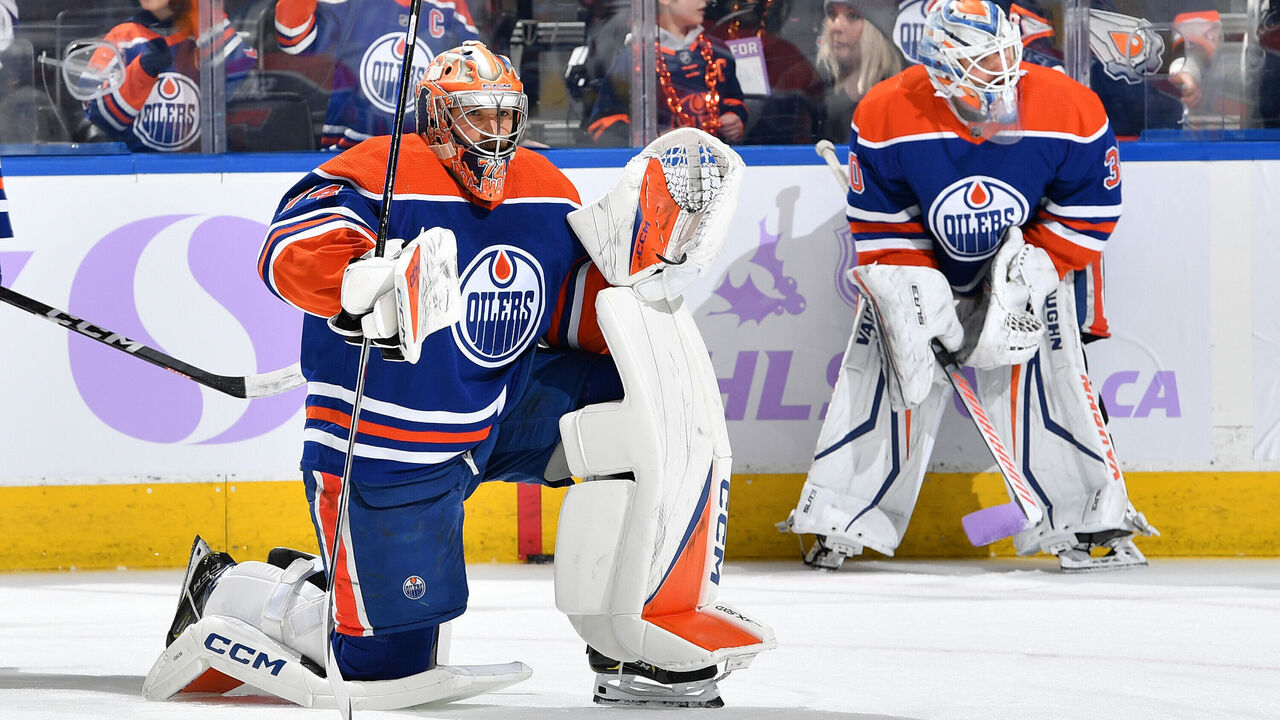
Record: 2-4-0 against the Jets, Blackhawks, Flames, Flyers, Predators, and Stars.
Reason for optimism: Edmonton was universally praised for its early-offseason work at forward. Adam Henrique, Connor Brown, Mattias Janmark, and Corey Perry were all re-signed at justifiable salaries, and unrestricted free agents Jeff Skinner and Viktor Arvidsson were inked to team-friendly deals.
You never really know how it'll all fit together until the puck drops. So far, so good for the Oilers - those six forwards have accounted for five of the team's 12 goals. Skinner, who's on a one-year, $3-million contract after getting bought out by the Sabres, has been particularly effective. He's found chemistry with Henrique, scoring twice on a team-high 21 shots despite not appearing on the top power-play unit and skating a career-low 14:07 a night.
On that note: Edmonton's struggling power play (one goal on 15 opportunities) will be fine. The same goes for the even-strength attack (26th in goals for per 60 minutes). The group has collectively hit 13 posts and crossbars, and both Connor McDavid and Leon Draisaitl are due to explode.
Reason for pessimism: Having lost Game 7 of the Cup Final by a single goal, the Oilers proved that they can go the distance with decent goaltending. But "decent" is far from a guarantee with the club's current tandem.
Stuart Skinner and backup Calvin Pickard combined for a .700 save percentage in the season opener. Pickard posted a .750 SV% in Game 2. Game 3: .893 for Skinner. 4: .900 for Skinner. 5: .926, Pickard. 6: .870, Skinner.
The Oilers aren't a stout defensive squad, so the netminders shouldn't shoulder all the blame for those ugly outings (and a league-worst penalty kill). Nevertheless, Skinner and Pickard rank 48th and 49th in goals saved above expected among the 55 goalies with two or more starts, according to Sportlogiq. Translation: neither guy is doing his job to an acceptable standard.
Montreal Canadiens
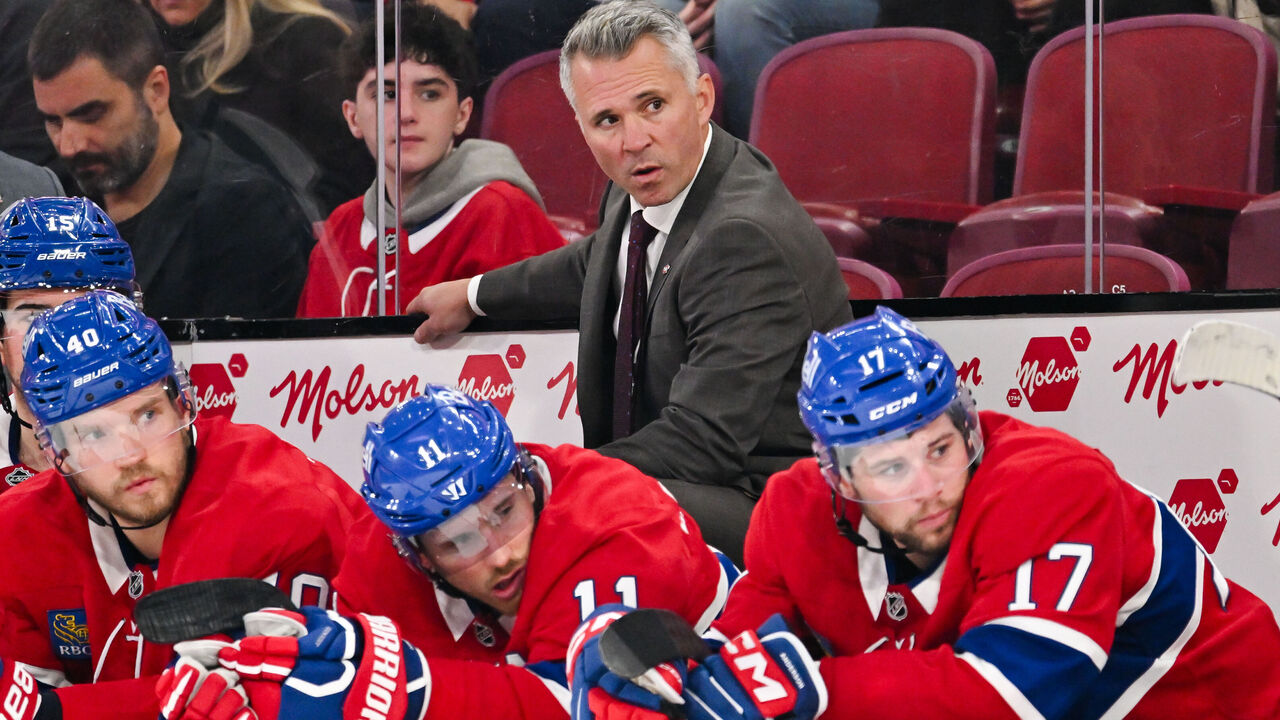
Record: 2-3-1 against the Maple Leafs, Bruins, Senators, Penguins, Kings, and Islanders.
Reason for optimism: Rookie Lane Hutson, the super smart, zone-entry machine logging 23 minutes a night, has been a revelation on the back end. But Cole Caufield's finishing touch is the Canadiens' ultimate driver of optimism.
Caufield is a critical piece in Montreal's present and future, and it feels like this is the year he finally earns the "all-world sniper" label. As a colleague put it recently, Caufield's the greatest 30-goal scorer who's never scored 30 - and he might skip 30 and hit 40 in 2024-25. Six snipes in six contests, including two game-winners, is a fantastic start (though the 23-year-old certainly won't be converting on 30% of his shots on goal over 82 games).
Caufield's linemates, Nick Suzuki and Juraj Slafkovsky, have been noticeable in spurts but largely disappointing early on. Both players are too talented and hungry to underwhelm for long. The trio will return to form sooner than later.
Reason for pessimism: The Canadiens have been pretty good at keeping opponents off the scoreboard. They're tied for 17th in goals allowed per game (3.33), with the relatively unheralded tandem of Sam Montembeault and Cayden Primeau rocking a .900 save percentage - good for 13th in the league.
The underlying data paints a much darker picture. On a per-game basis, Montreal sits 30th in expected goals against; 31st in shot attempts against; 31st in shots on goal against; 27th in slot shots against; 24th in inner-slot shots against; and 32nd in offensive-zone possession time by the opposition.
Kaiden Guhle's injury isn't helping matters. The Habs took six minor penalties and were an overall mess defensively over the weekend in the first game without the stud blue-liner - a 4-3 shootout loss to the Islanders.
These are expected yet frustrating growing pains for a team in transition.
Ottawa Senators
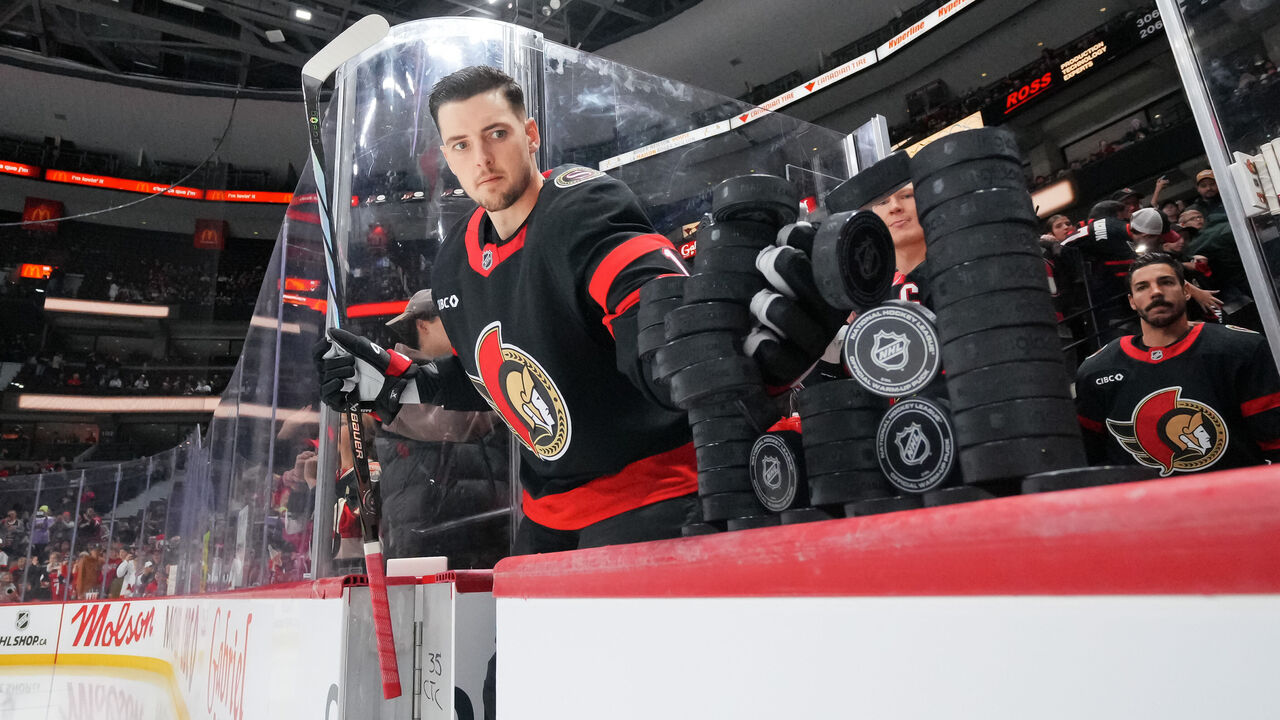
Record: 3-2-0 against the Panthers, Canadiens, Kings, Devils, and Lightning.
Reason for optimism: Heading into training camp, there was a lot of mystery swirling around the important center spots on the Senators' depth chart.
Would 1C Tim Stutzle bounce back to his 90-point form of 2022-23? Will 2C Josh Norris and his wonky shoulder hold up? What would a full year of 3C Shane Pinto look like? How would the wingers in the top nine - two of them new in David Perron and Michael Amadio - fit into the grand scheme?
None of those questions have been fully answered. The season is five games old, after all. Still, the early returns are promising. Stutzle's flying, Norris is in a groove, Pinto's more impactful than ever, and the wingers are carving out their niches. The three lines have a nice blend of playmaking, shooting, and energy. Drake Batherson, one of the most underrated wingers in the NHL, stole the show over the weekend with a dominant three-point performance.
Reason for pessimism: Like most clubs with a new coach and core of mainly offensively gifted players, Ottawa remains a work in progress in their own zone. Case in point: last week's defense-optional 8-7 victory over the Kings.
Part of the problem is roster makeup. The blue line thins out after Jake Sanderson and Thomas Chabot on the left side, and Artem Zub, who's currently out with a concussion, on the right. Starting goalie Linus Ullmark impressed in his first two appearances in a Senators uniform (53 saves on 58 shots) before missing the next three to nurse a muscle strain. Ullmark's expected to return to the crease early this week. The Sens need his stability.
Ottawa is notorious for its poor starts. The next two weeks will test this group - on the road against Utah, the Golden Knights, and the Avalanche, home for the Blues, back on the road to visit the Rangers, then home again to host the Kraken.
Toronto Maple Leafs
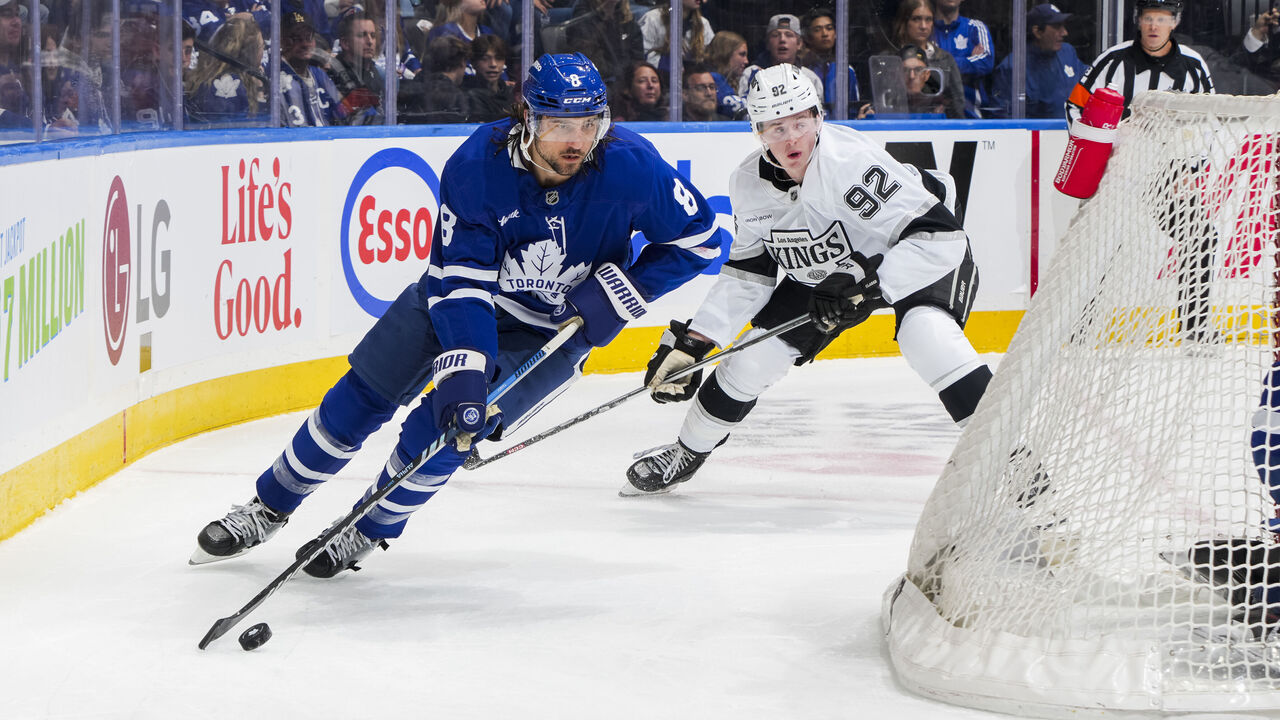
Record: 3-2-0 against the Canadiens, Devils, Penguins, Kings, and Rangers.
Reason for optimism: The newest members of the team have hit the ground running - most notably head coach Craig Berube, who's received immediate buy-in on his preferred style. Toronto's playing north-south hockey (tighter defensive gaps, simple zone exits, attacking in straight lines instead of regrouping, etc.), which has led to a plus-7 goal differential at five-on-five.
Goalie Anthony Stolarz has been stellar, stopping 104 of 111 shots while partner Joseph Woll deals with yet another injury. Defenseman Chris Tanev has been as advertised through five games: He boasts efficiency on the breakout, 15 blocked shots, and an all-in-all savvy top-four game that's translated to strong numbers at even strength and on the penalty kill. Defenseman Oliver Ekman-Larsson and forward Steven Lorentz count as two other early standouts.
Not every offseason move has panned out thus far, with forward Max Pacioretty being scratched and blue-liner Jani Hakanpaa still out with an injury. On aggregate, though, GM Brad Treliving's bets have paid off.
Reason for pessimism: The power play, which bagged one goal in 21 opportunities during a seven-game series loss to Boston in the spring, is still failing to convert. The Leafs are tied for 26th in power-play percentage (12.5) and 28th in power-play goals scored per 60 minutes (4.01).
Depending on the night, the struggles can be traced back to poor zone entries, passing one too many times, or firing the puck wide. There are personnel decisions to be made, namely which of Ekman-Larsson and Morgan Rielly is best suited to man the point on the Auston Matthews unit.
Assistant coach Marc Savard, a premier playmaker in his playing days, is in charge of the power play. With so much forward talent and a history of strong conversion rates in the regular season, it's by no means time to panic.
Vancouver Canucks
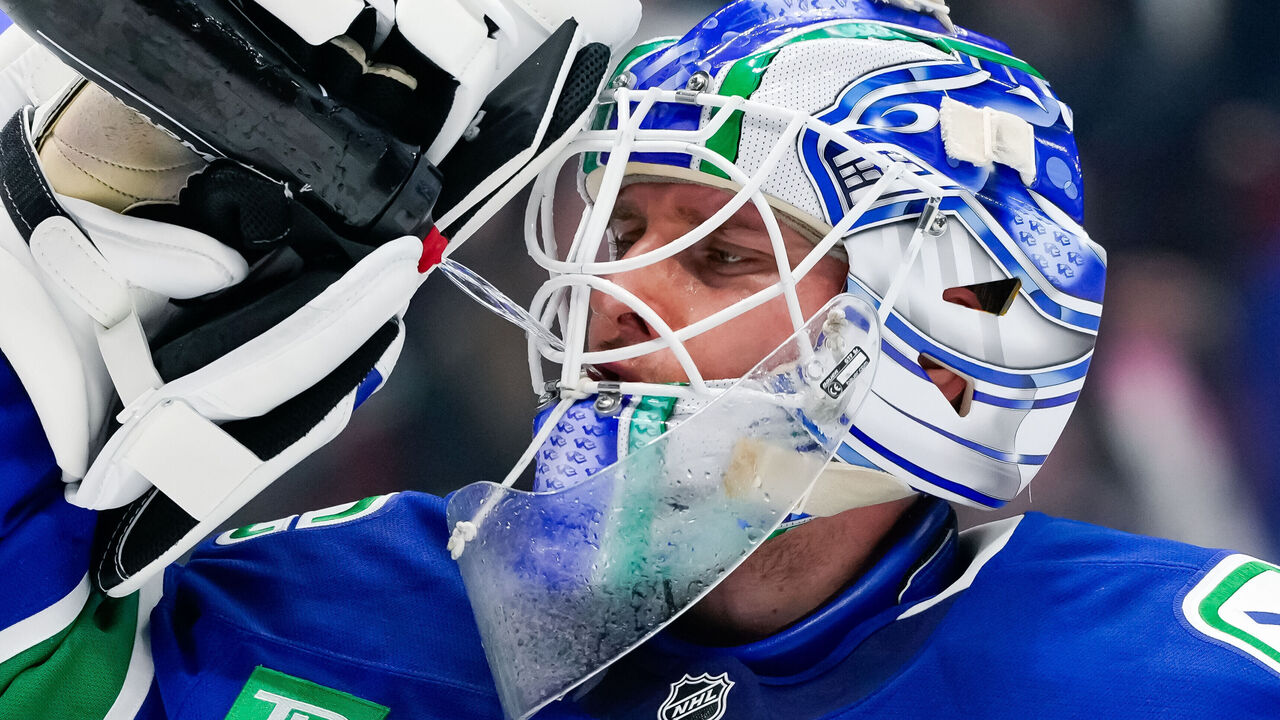
Record: 2-1-2 against the Flames, Flyers (twice), Lightning, and Panthers.
Reason for optimism: Kevin Lankinen has emerged as a capable fill-in for injured starter Thatcher Demko. The cool, calm Finn - signed to a one-year, $875,000 contract in late September - has allowed just four goals on 85 shots.
The optimism doesn't stem from a belief that, at 29, Lankinen has suddenly become a star; maybe he's better than the league previously gave him credit for, but he'll come back down to earth eventually. Instead, the optimism stems from the timing of Lankinen's three confidence-building performances. The Canucks were flirting with an early-season slide following a 0-1-2 start.
Another facet of this storyline is workload. Since there's no firm date for Demko's return, head coach Rick Tocchet must be smart in how he hands out starts to Lankinen and Arturs Silovs, who's now the clear backup.
Reason for pessimism: Elias Pettersson has picked up where he left off - which isn't a compliment. The typically crafty two-way center was a ghost for the vast majority of last season's 13-game playoff run. And through five games to open 2024-25, he's collected two assists. No goals in 100 minutes.
This is the first season of an eight-year deal that pays him $11.6 million annually.
Pettersson has simply looked off. He's operated too passively off the rush and on the forecheck, made dumb decisions with the puck, and generally been uncharacteristically uncreative. With Pettersson on the ice at five-on-five, the Canucks have scored two goals and let in two goals while getting steamrolled territorially to the tune of a 39.5% expected goals rate, per Evolving-Hockey. No team can afford to get outplayed that badly during its best forward's shifts.
To be fair, Pettersson seems to be headed in the right direction. He gelled with Conor Garland and Nils Hoglander in Saturday's 3-0 win over the Flyers.
Winnipeg Jets
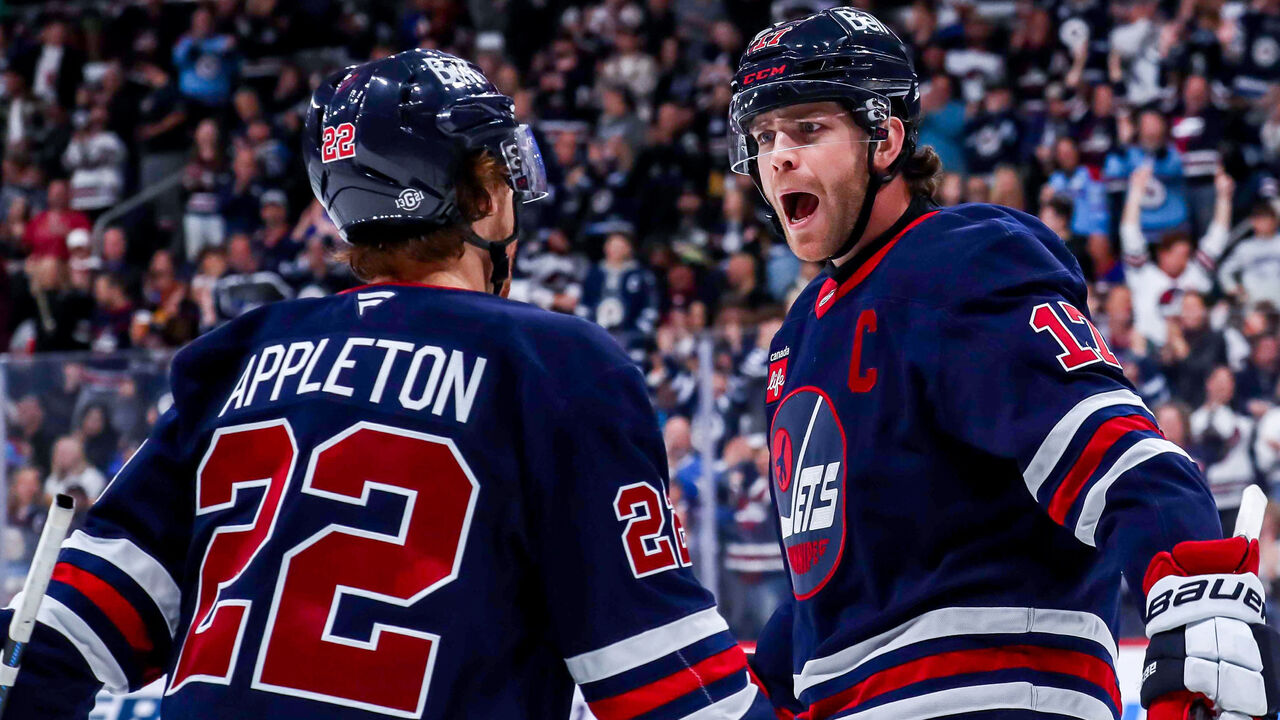
Record: 5-0-0 against the Oilers, Blackhawks, Wild, Sharks, and Penguins.
Reason for optimism: Picking one is no easy task for an undefeated team that's had just about everything go its way. But let's focus on the bottom two forward lines. The trio of Adam Lowry between Mason Appleton and Nino Niederreiter has outscored the opposition 5-0 in 54 five-on-five minutes. That plus-5 goal differential is tied for second-best in the NHL. The Lowry line - which was excellent last season - is also controlling 53% of the shot attempts, 54% of the shots on goal, and 62% of the expected goals, according to Evolving-Hockey.
Meanwhile, the fourth line of Rasmus Kupari between Alex Iafallo and Morgan Barron is 1-1 in 30 five-on-five minutes. While that goal output is far from prolific, they're destroying the opposition in attempts (69%), shots (75%), and expected goals (70%).
This kind of bottom-six dominance perfectly complements Winnipeg's top six. Those go-to lines aren't particularly strong defensively. They try to outscore any problems. It's helpful to have variety up front.
Reason for pessimism: Winnipeg's collected 10 out of 10 available points. They're getting contributions up and down the lineup. The goalies have held down the fort. There are no red flags in the underlying data. No major injuries.
Still, a larger sample size is needed before the Jets can be considered a serious Cup contender - especially since four of their first five opponents failed to make the 2024 playoffs. Also: the power play, operating at 43.8%, is unsustainably hot. The inevitable cooldown will alter Winnipeg's trajectory.
Other than that, ride this wave, Jets fans.
John Matisz is theScore's senior NHL writer. Follow John on Twitter (@MatiszJohn) or contact him via email ([email protected]).
HEADLINES
- Trade grades: Wild instantly become Cup contenders, Canucks score quantity
- McDavid: Smaller Olympic ice 'not a big deal'
- Bedard injured in final second vs. Blues on 'freak accident'
- Canucks GM: Hughes trade not because of a culture problem
- Trade grades: Oilers gamble on Jarry, Penguins make out like bandits